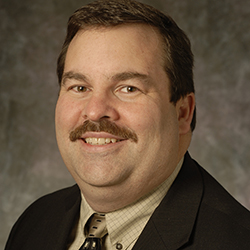William K. Hallman Ph.D.
 Professor and Chair
Professor and Chair
Department of Human Ecology
Director, Food Policy Institute
Rutgers, The State University of New Jersey
Email: hallman@aesop.rutgers.edu
Discipline: Psychology
Expertise: Public Opinion, Food Policy/Marketing
Investigator Award 
The Diet-Health Nexus: Communicating Emerging EvidenceAward Year: 2008 As increasing numbers of Americans try to eat healthily and reduce their risk of chronic disease, they are paying more attention to product ingredients, labeling, advertising, and information from a variety of sources about the health benefits of foods and beverages. They are also spending more on foods that they believe are "heart-healthy" or can reduce their risk for certain cancers. But given the level of scientific uncertainty surrounding the health effects of food, what are consumers getting for their money? Co-PIs William K. Hallman, Ph.D. and Neal H. Hooker, Ph.D. study how information is used in food claims and marketing, as well as how adeptly consumers grasp the information provided. Their project, The Diet-Health Nexus: Communicating Emerging Evidence, examines how information is crafted and conveyed; how older consumers understand and evaluate food claims and dietary advice; and whether the Food and Drug Administration's (FDA) regulatory approach has educated consumers about the limits of scientific evidence and the accuracy of health claims. Drs. Hallman and Hooker will produce recommendations on how to better inform consumers. Their project should help shape the FDA's efforts to revise, or perhaps even revamp, its policies for regulating health claims by food and beverage manufacturers and producers.
Background 
Dr. William K. Hallman is a professor and chair of the department of human ecology, a member of the graduate faculty of the departments of psychology and nutritional sciences, and is director of the Food Policy Institute, at Rutgers, The State University of New Jersey. His research focuses on public perceptions of risk and risk communication related to new technologies, food, and health. Recent projects have examined consumer understanding, perceptions, and behaviors related to intentional and unintentional food contamination, food recalls, food imports, agro-terrorism, emergency preparedness, and food insecurity. He has also conducted extensive research into public perceptions of genetically modified foods, food nanotechnology, the meat and milk of cloned animals, avian influenza, mad cow disease, American's mental models of bacteria and viruses, and other food safety issues. Dr. Hallman is a 1983 graduate of Juniata College in Huntingdon, Pennsylvania. He received his Ph.D. in experimental psychology from the University of South Carolina in 1989 and was awarded the Dissertation of the Year by the Division of Community Psychology of the American Psychological Association.
- William K. Hallman, Angela Senger-Mersich,and Sandria L. Godwin, Online Purveyors of Raw Meat, Poultry, and Seafood Products: Delivery Policies and Available Consumer Food Safety Information, Food Protection Trends, Vol 35, No. 2, p.80–88 / 2015
- Berhaupt-Glickstein, A., Nucci, M. L., Hooker, N. H., & Hallman, W. K. The evolution of language complexity in qualified health claims. Food Policy, 2014, 47: 62-70.
- Nucci, M.L. & Hallman, W.K. Food and scientific illiteracy. Museums & Social Issues, 2012, 7: 59-70.
